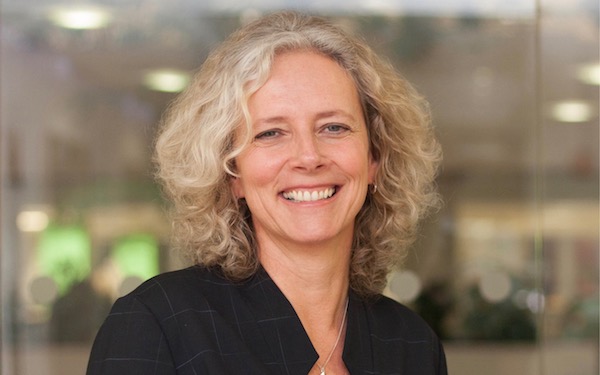
By Rob Preston and Mithran Samuel
The social work and social care workforce “really held up” when Covid-19 hit last year, the chief social worker for children and families has said.
Isabelle Trowler told Community Care Live this week that she “had nothing but admiration” for how local authorities responded to the pandemic, saying they had “just got on with the job”, at a time when central government was struggling to put plans into place.
Trowler was speaking alongside chief social worker for adults Lyn Romeo, British Association of Social Workers chief executive Ruth Allen and Farrah Khan, co-chair of the Principal Children and Families Social Worker network, in a session on social work after Covid.
Legacy of unmet need
Allen said that Covid had created new forms of need within communities and also left a legacy of unmet need because of the number of missed visits and assessments resulting from public health restrictions.
She said the impact of Covid meant that social workers needed to be increasingly skilled in responding to mental distress.
Khan and Romeo highlighted the fact that Covid had amplified existing inequalities, including for black and ethnic minority communities, while the adults’ chief social worker stressed the deepening need in the population from increased social isolation, loss and bereavement.
Khan also flagged the impact of working remotely on social workers, in terms of lost opportunity to share experiences with colleagues and the particular struggles faced by those joining the profession during the pandemic.
But the panel praised social workers for the way they had innovated in their practice, including through use of technology, to overcome the significant challenges they faced in meeting need. This had also supported better multi-agency working, overcoming longstanding bureaucratic barriers.
‘Good or bad bureaucracy’
On whether such innovation could continue, Trowler said it would need strong support from across the sector. She pointed to her experience of championing a ‘power to innovate’ that would have enabled councils to apply for exemptions from children’s social care law.
The government eventually dropped these plans from its Children and Social Work Act 2017 following widespread opposition from social work organisations and children’s charities on the grounds that they constituted a threat to children’s rights.
Similar opposition met regulations brought in at the start of the pandemic to relax certain children’s services duties on councils and providers, leading to a judicial review that found that the government had unlawfully consulted too narrowly on the changes.
Allen stressed that there was value in some bureaucracy: “Good bureaucracy is good – it provides for fairness, equality and transparency. Bad bureaucracy is murky and gets in the way.”
Reduced numbers of children entering care
While acknowledging that the pandemic had left a lot more families with severe needs, Trowler said that it had demonstrated the “unbelievable” strengths in families and communities, who she said had “really pulled together”.
She also praised children and young people who had been “exemplary citizens” in the way they had responded to the restrictions on them.
Trowler also pointed to the fact that the pandemic saw a big drop in referrals and demand for children’s social care, with levels increasing this year but not to the point of exceeding pre-pandemic numbers.
Department for Education data shows that the number of children taken into care from May 2020 to July 2021 was about 29% lower, at 10,450, than equivalent periods from 2017-20.
Following a decade in which demand for children’s services has first increased significantly before plateuing, Trowler questioned whether this was a case of children’s services not recognising harm or of supporting families differently, though said more research would be needed to explore this.
This issue is being considered by the children’s social care review, led by Josh MacAlister, who has repeatedly warned that services are over-intervening in family life without providing enough support to help them meet their needs.


 Bournemouth, Christchurch and Poole
Bournemouth, Christchurch and Poole  Hampshire County Council
Hampshire County Council  Lincolnshire County Council
Lincolnshire County Council  Norfolk County Council
Norfolk County Council  Northamptonshire Children’s Trust
Northamptonshire Children’s Trust  South Gloucestershire Council
South Gloucestershire Council  Wiltshire Council
Wiltshire Council  Wokingham Borough Council
Wokingham Borough Council  Children and young people with SEND are ‘valued and prioritised’ in Wiltshire, find inspectors
Children and young people with SEND are ‘valued and prioritised’ in Wiltshire, find inspectors  How specialist refugee teams benefit young people and social workers
How specialist refugee teams benefit young people and social workers  Podcast: returning to social work after becoming a first-time parent
Podcast: returning to social work after becoming a first-time parent  Podcast: would you work for an inadequate-rated service?
Podcast: would you work for an inadequate-rated service?  Family help: one local authority’s experience of the model
Family help: one local authority’s experience of the model  Workforce Insights – showcasing a selection of the sector’s top recruiters
Workforce Insights – showcasing a selection of the sector’s top recruiters 

 Facebook
Facebook X
X LinkedIn
LinkedIn Instagram
Instagram
As usual Trowler has nothing to say about the poverty and inequality fueled by the Tories and with the cuts to UC about to put 500000 more into poverty. Shameful
She has nothing to say about the poor and chronic conditions children’s statutory social worker’s have worked in for over 30 years. Would like to know how many years she did frontline in a statutory setting with a local authority.
Some of our colleagues didn’t hold up though did they? They got sick or died but you and your fellow travellers have nothing to say about that do you.